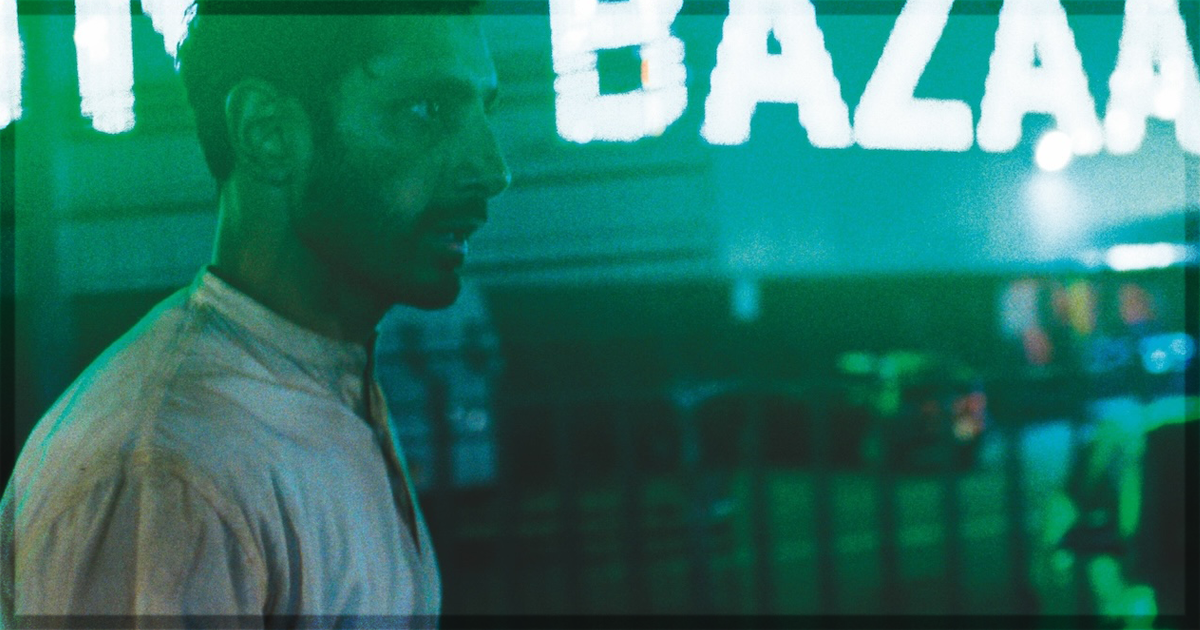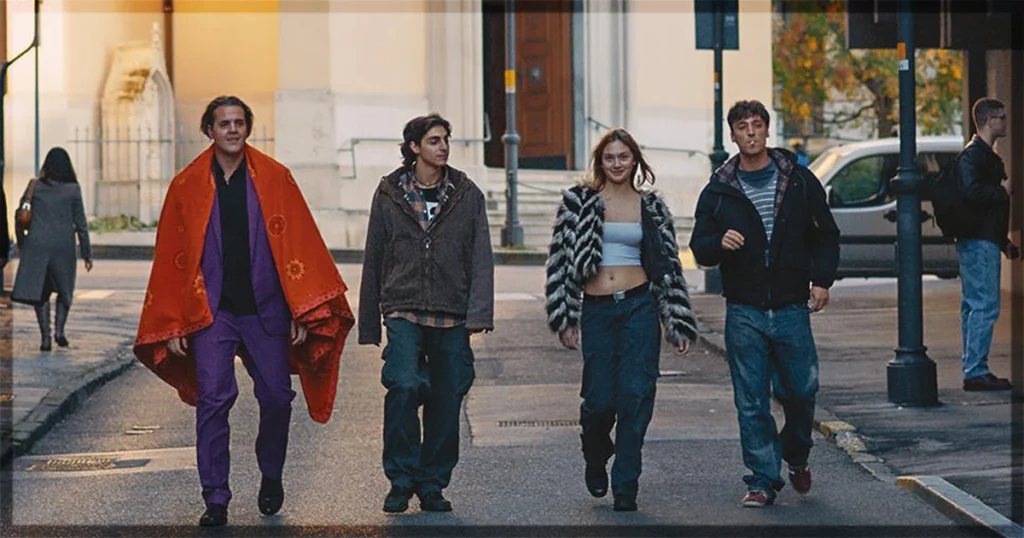Curiosity and hope were my personal feelings going into the cinema to see Hamlet (2025). I knew beforehand this would be another transposition of Shakespeare’s iconic tragedy into a contemporary context, an exercise that’s always risky in itself. However, the decisive factor in giving the film a chance was, without a doubt, the cast. The presence of Riz Ahmed (Sound of Metal), an actor with unquestionable intensity and commitment, and Morfydd Clark (The Lord of the Rings: The Rings of Power), a rising artist with a distinct talent, promised captivating central performances, at the very least.
To put the reader in my shoes is to feel, from here, that the initial hope quickly dissipated, giving way to a sense of disinterest and alienation that, unfortunately, set in very early in the narrative and never left me, turning the viewing experience into an immersion struggle.
Hamlet is a modern reimagining of William Shakespeare’s original play, transporting the family drama and thirst for revenge to present-day London, set within an affluent South Asian British community. Directed by Aneil Karia and written by Michael Lesslie (Macbeth), the movie stars Riz Ahmed as the tormented title character.
The first major surprise was the realization of how literal the translation of the Shakespearean text is for this current reality, and this is where the core of my reluctance with Hamlet lies, making my criticism particularly delicate: I’m inherently against the concept of maintaining the poetic and archaic language in a setting of cars, mobile phones, and modern architecture. It’s a criticism that touches the very premise, and I admit that might be unfair to the creative team.
That said, it’s precisely the execution of this premise that fails to convert me. The strangeness of watching characters in central London communicate poetically, with language that demands extra effort to fully decipher its meaning and intent, constantly breaks any vestige of involvement. The poetry, so beautiful on stage or in a period drama, becomes repetitive, tiresome, and strangely monotonous when out of its original time.
The weight of this choice falls overwhelmingly onto Ahmed’s shoulders, who throws himself body and soul into the myriad of long, uninterrupted monologues in Hamlet. His performance is absolutely vehement, a testament to his caliber as an actor. However, the delivery is so excessive that the lack of scenic or narrative elements to support the impact of his lines transforms his intensity into a distraction.
It’s unusual and even somewhat bizarre to hear the lead character “firing off” his inner speeches into the void, talking to himself in random locations — inside a car, in a bathroom, or in the bedroom — without the camera finding a visually satisfying way to root us in his mind. The vehemence, at times, becomes so exaggerated that it ends up being the most distracting element of the adaptation, rather than the anchor point for his descent into madness.
It’s also a shame that the richness of the ensemble cast is so poorly utilized. Morfydd Clark, an artist who has shown a magnetic presence in previous films, is clearly wasted in the role of Ophelia. She’s denied a truly standout moment of her own, spending much of the time being forced to react to the actions and words of others, a mere object in the maelstrom of Hamlet’s paranoia. The movie focuses so much on the protagonist’s anguish and monologues, following the logic of the play, that the complexity of other characters and the construction of the world around them fade, leaving them short of the potential of the actors who play them.
Hamlet seems to be directed, very specifically, toward a niche of Shakespeare enthusiasts who appreciate the literality of the text and its formal translation. I wasn’t surprised (but saddened) by the number of critics who left the press screening at different moments of the screening or who couldn’t stay awake, a clear sign of the difficulty this approach imposes. The film fails in its mission to make the tragedy accessible or engaging for the common viewer or for the critic looking for a new thematic study in the update. Its biggest mistake, perhaps, is focusing on the rigor of the language at the expense of the universality of emotion.
And to this end, it’s essential to state a reservation: Hamlet should be judged on its own merits and demerits and must not be compared with Chloé Zhao’s take, Hamnet. After all, these are titles based on entirely different sources — one is adapted from the original XVII century play, and the other from Maggie O’Farrell’s 2020 novel, which explores Shakespeare’s personal life.
Final Thoughts on Hamlet
Hamlet is an admittedly frustrating experience. Despite the titanic effort by Riz Ahmed and the undeniable ambition of director Aneil Karia, the decision to keep the Shakespearean dialogue intact in the current context creates an artificial and insurmountable barrier to immersion. The film ends up being less a cohesive reinterpretation and more a display of isolated virtuosity, a gift for the text’s most devoted followers that the general audience will find tricky to accept. What remains is the portrait of an eternal mourning, suffocated by the very fidelity to the ghost it sought to avenge.
Rating: D+
Hamlet is now playing in theaters. It also recently played at the London Film Festival.
Learn more about the film, including how to buy tickets, at the official website for the title.


